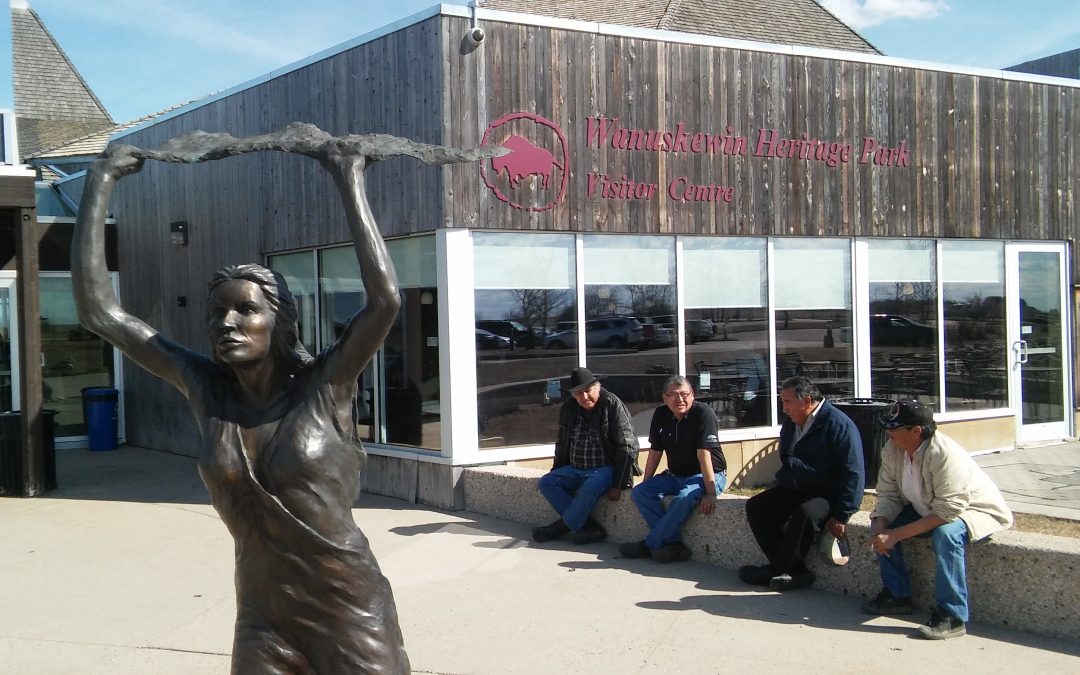After years of waiting Beardy’s and Okemasis First Nation will soon find out how much they are owed in compensation after the government failed in their treaty obligation.
The first ever compensation hearing steaming from a Specific Claims Tribunal decision wrapped up in Wanuskewin Heritage Park Wednesday afternoon.
The Compensation hearing comes from a recent Tribunal ruling that says the Government of Canada breached their treaty obligation when they withheld funding from Beardy’s and Okemasis.
The Government withheld treaty annuities from the reserve for a three year period following the Riel Rebellion of 1885 because they deemed them as a rebellious band.
$4,250 was withheld from the band during this time.
The compensation hearing will be used to determine how much is owed to Beardy’s because of the breach.
Ron Maurice, counsel for Beardy’s and Okemasis says they actually haven’t put forward a specific dollar amount for what they would be seeking.
“We are leaving that up to the discretion of the tribunal,” says Maurice. “We have attempted to assist the tribunal in laying out what the range of potential outcomes could be.”
Throughout the three day hearing Beardy’s and Crown lawyers have been putting forward submissions over the total damages caused by the breach and what is a “reasonable” value of compensation.
The biggest topic of discussion is over how that funding could have grown and been used in the many years since.
Ron Maurice says they have laid out a range from $4.5 million dollar to $2.5 billion based on possible uses from the money. Maurice does agree the $2.5 billion dollar is ‘unreasonable’ and is only derived if this money had been used in the best possible way in the past 130 years i.e investing in IBM, Apple and Google at prime investment opportunities.
The Crown put forward studies detailing the spending habits from other First Nations during that time. They say the evidence shows the band would have spent the money and would not have invested it in a considerable fashion.
Beardys lawyers agreed the band may have spent the money, but argued that the First Nation was very poor at the time and that should not be held against them. They say the tribunal should base compensation on how a “reasonable and prudent” person would have invested it.
Several other arguments were put forward by both sides as well.
Maurice says it is a difficult process to determine the total damages caused to the community.
“In many ways the damages are irreversible and the strain that it has put on the relationship between First Nations and Canada in this part of the country has been tremendous,” says Maurice.
The hearing was scheduled to completely wrap up on Wednesday, However, the justice presiding over the tribunal requested further written submissions from both the Crown and Beardy’s counsel.
Justice Harry Slade gave each parties three weeks to complete these submissions. He will review them and they will play into his final decision.
Justice Slade says the compensation hearing has been thorough, which he was glad to see because there is a lot at stake in this hearing and they have to get it right.
He is expecting to make his final decision by the end of June.
This decision will be the first time the Specific Claims Tribunal will rule on compensation since the Specific Claims Tribunal Act came into law in 2008.
Following the rebellion of 1885 treaty funding was withheld from 13 other First Nations as well.
Many leaders believe the decision on Beardys and Okemasis will shed light on how much may be owed to these other bands as well.
